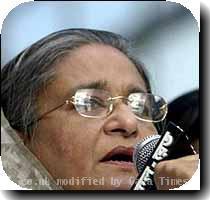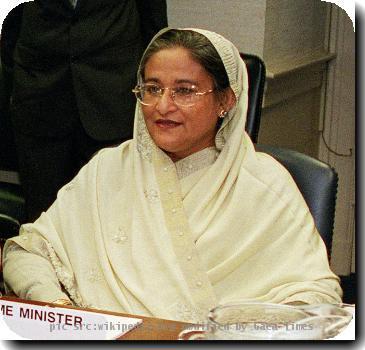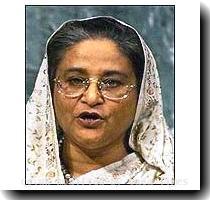Bangladesh raises garment workers’ wages 80 percent after months of violent protests
By Farid Hossain, APThursday, July 29, 2010
Bangladesh raises garment workers’ pay 80 percent
DHAKA, Bangladesh — Bangladesh has raised minimum monthly wages for its millions of garment workers by about 80 percent after months of violent protests over poor pay and conditions, a government minister said Thursday.
Garment workers in Bangladesh are paid the least in the world and are unable to buy food and arrange shelter on their monthly earnings, according to the International Trade Union Confederation, a Vienna-based labor rights group.
The official minimum wage has been set at 3,000 takas ($45) a month, up from 1662 takas ($25) in the first raise since 2006, Labor Minister Khandaker Mosharaff Hossain said.
“We have tried our best to meet the demands of the workers,” Hossain told reporters in announcing the new wages after months of negotiations with garment factory owners.
The new pay structure starts in November and has seven grades — the highest pay fixed at 9,300 takas ($140).
Factory owners or trade union leaders were not immediately available for comment Thursday.
Workers and labor rights groups have pressed for a monthly wage of 5,000 takas ($73).
The raise came about a week after Prime Minister Sheikh Hasina criticized the garment industry for paying low wages to workers.
Bangladesh’s garment exports mainly to the United States and Europe earn more than $12 billion a year, nearly 80 percent of the country’s export income. The country has 4,000 factories employing more than 2 million workers, most of them women.
In recent months, thousands of garment demanding higher wages have protested on the streets, attacked factories and blockaded highways in and outside the capital, Dhaka.
In June, about 700 garment factories in a major industrial hub near Dhaka were shut for two days after days of violent protests by tens of thousands of workers demanding better wages.
International clothing companies Wal-Mart, Tesco, H&M, Zara, Carrefour, Gap, Metro, JCPenney, Marks & Spencer, Kohl’s, Levi Strauss and Tommy Hilfiger all import in bulk from Bangladesh.
The manufacturers say they’re being squeezed by a slump in prices on international market because of global economic crisis. They also say higher production costs due to an energy crisis and poor infrastructure are pushing them to the edge.
Tags: Asia, Bangladesh, Dhaka, Labor Issues, Personnel, Protests And Demonstrations, Sheikh Hasina, South Asia


